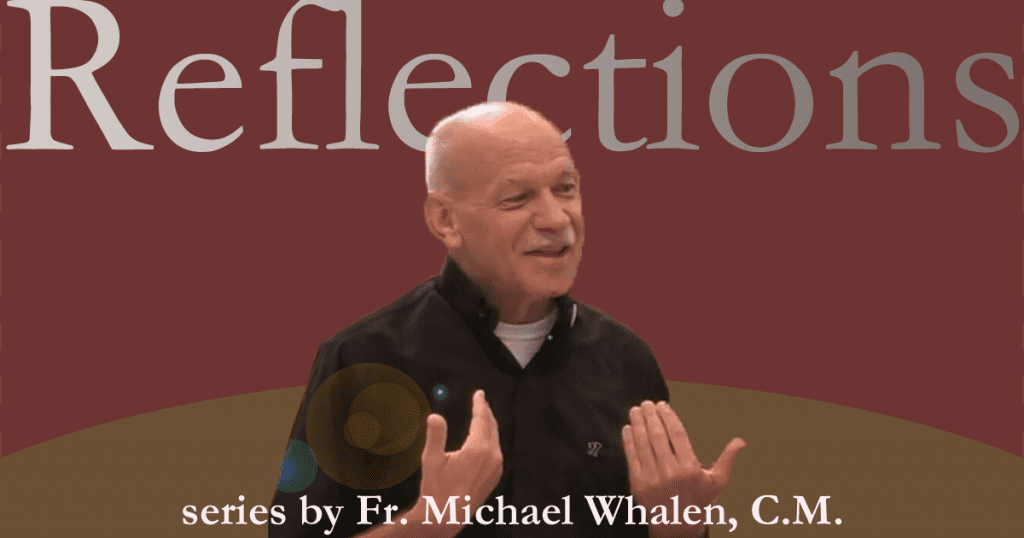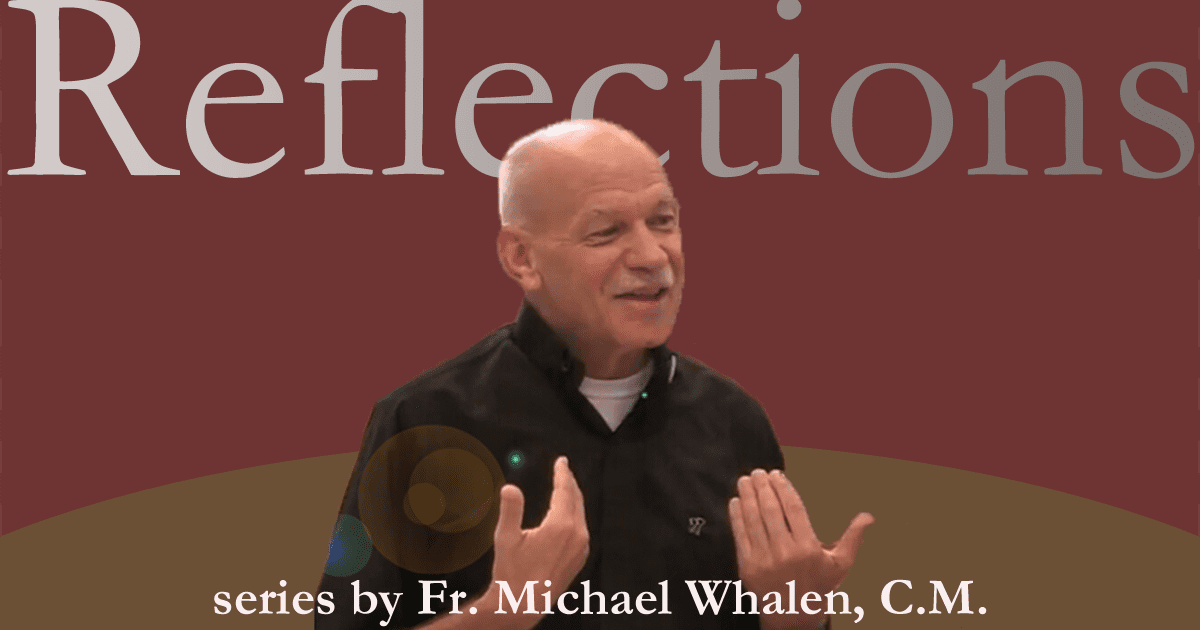A Wideness in God’s Mercy, A Kindness in God’s Justice

Before moving forward it might prove useful to pursue a series of five meditations on the relationship between mercy and justice. In the first meditation, the relationship between mercy and justice as enshrined in Pope Francis’ Bull of Indiction is noted (primarily by way of quoting the Bull directly). In the second meditation, the relationship is explored from several theological venues. Here we will attempt to “unpack” the major ideas contained in the Bull in conversation with the broader Catholic theological tradition. Next, in the third meditation, we will explore the relationship of justice and mercy in the political and economic sphere especially by way of a metaphorical application of the concept of forgiveness. In the fourth meditation the vexing and somewhat perplexing idea of hell (pertaining as it does, in part, to justice and mercy) is explored. Finally, the fifth meditation explores the question of “indulgences” which, in a sense, pertain to the matter of justice and which are very much part of the Year of Mercy.
To put the matter bluntly: justice pesters mercy, and mercy returns the favor. The rather well-worn and oft-sung hymn “There’s a Wideness in God’s Mercy” serves well as a to witness to the tension:
There’s a wideness in God’s mercy like the wideness of the sea;
there’s a kindness in God’s justice, which is more than liberty.
There is welcome for the sinner, and more graces for the good;
there is mercy with the Savior, there is healing in his blood.
There is no place where earth’s sorrows are more felt then up in heaven;
there is no place where earth’s failings have such kindly judgment given,
There is plentiful redemption in the blood that has been shed,
there is joy for all the members in the sorrows of the head.
For the love of God is broader than the measure of man’s mind
and the heart of the Eternal is most wonderfully kind.
If our love were but more faithful, we should take him at his word,
and our life would be thanksgiving for the goodness of the Lord.
But we make his love too narrow by false limits of our own;
and we magnify his strictness with a zeal he will not own.
Was there ever kinder shepherd half so gentle, half so sweet,
as the Savior who would have us come and gather at his feet.
However, other testimonies also emerge. To paraphrase an observation by St. Thomas Aquinas in his Commentary on the Gospel of St. Matthew: Mercy without justice is the mother of dissolution; and justice without mercy is cruelty. Likewise Cardinal Walter Kasper in his work Mercy: The Essence of the Gospel and the Key to Christian Life (a work which deeply influenced Pope Francis) suggests that justice seems to be necessary if we are to avoid a “sentimental mercy.” Furthermore both St. John Paul II and Pope Emeritus Benedict XVI grapple with the relation in encyclicals written during their pontificates: St. John Paul discusses the relationship in his second encyclical “Rich in Mercy” #12 where he explores the question “Is Justice Enough?” and Benedict XVI explores the relationship in his first encyclical “God Is Love” quite forwardly as “Justice and Charity” (#20-29).
Though this is a lengthy quote in his Bull of Indiction, Midericordiae Vultus, Pope Francis deals with the issue in sections 20 and 21 (italics mine):
20. It would not be out of place at this point to recall the relationship between justice and mercy. These are not two contradictory realities, but two dimensions of a single reality that unfolds progressively until it culminates in the fullness of love. Justice is a fundamental concept for civil society, which is meant to be governed by the rule of law. Justice is also understood as that which is rightly due to each individual. In the Bible, there are many references to divine justice and to God as “judge.” In these passages, justice is understood as the full observance of the Law and the behavior of every good Israelite in conformity with God’s commandments. Such a vision, however, has not infrequently led to legalism by distorting the original meaning of justice and obscuring its profound value. To overcome this legalistic perspective, we need to recall that in Sacred Scripture, justice is conceived essentially as the faithful abandonment of oneself to God’s will.
For his part, Jesus speaks several times of the importance of faith over and above the observance of the law. It is in this sense that we must understand his words when, reclining at table with Matthew and other tax collectors and sinners, he says to the Pharisees raising objections to him, “Go and learn the meaning of ‘I desire mercy not sacrifice.’ I have come not to call the righteous, but sinners” (Mt 9:13). Faced with a vision of justice as the mere observance of the law that judges people simply by dividing them into two groups – the just and sinners – Jesus is bent on revealing the great gift of mercy that searches out sinners and offers them pardon and salvation. One can see why, on the basis of such a liberating vision of mercy as a source of new life, Jesus was rejected by the Pharisees and the other teachers of the law. In an attempt to remain faithful to the law, they merely placed burdens on the shoulders of others and undermined the Father’s mercy. The appeal to a faithful observance of the law must not prevent attention from being given to matters that touch upon the dignity of the person.
The appeal Jesus makes to the text from the book of the prophet Hosea – “I desire love and not sacrifice” (6:6) – is important in this regard. Jesus affirms that, from that time onward, the rule of life for his disciples must place mercy at the center, as Jesus himself demonstrated by sharing meals with sinners. Mercy, once again, is revealed as a fundamental aspect of Jesus’ mission. This is truly challenging to his hearers, who would draw the line at a formal respect for the law. Jesus, on the other hand, goes beyond the law; the company he keeps with those the law considers sinners makes us realize the depth of his mercy.
The Apostle Paul makes a similar journey. Prior to meeting Jesus on the road to Damascus, he dedicated his life to pursuing the justice of the law with zeal (cf. Phil 3:6). His conversion to Christ led him to turn that vision upside down, to the point that he would write to the Galatians: “We have believed in Christ Jesus, in order to be justified by faith in Christ, and not by works of the law, because by works of the law shall no one be justified” (2:16).
Paul’s understanding of justice changes radically. He now places faith first, not justice. Salvation comes not through the observance of the law, but through faith in Jesus Christ, who in his death and resurrection brings salvation together with a mercy that justifies. God’s justice now becomes the liberating force for those oppressed by slavery to sin and its consequences. God’s justice is his mercy (cf. Ps 51:11-16).
21. Mercy is not opposed to justice but rather expresses God’s way of reaching out to the sinner, offering him a new chance to look at himself, convert, and believe. The experience of the prophet Hosea can help us see the way in which mercy surpasses justice. The era in which the prophet lived was one of the most dramatic in the history of the Jewish people. The kingdom was tottering on the edge of destruction; the people had not remained faithful to the covenant; they had wandered from God and lost the faith of their forefathers. According to human logic, it seems reasonable for God to think of rejecting an unfaithful people; they had not observed their pact with God and therefore deserved just punishment: in other words, exile. The prophet’s words attest to this: “They shall not return to the land of Egypt, and Assyria shall be their king, because they have refused to return to me” (Hos 11:5). And yet, after this invocation of justice, the prophet radically changes his speech and reveals the true face of God: “How can I give you up, O Ephraim! How can I hand you over, O Israel! How can I make you like Admah! How can I treat you like Zeboiim! My heart recoils within me, my compassion grows warm and tender. I will not execute my fierce anger, I will not again destroy Ephraim; for I am God and not man, the Holy One in your midst, and I will not come to destroy” (11:8-9). Saint Augustine, almost as if he were commenting on these words of the prophet, says: “It is easier for God to hold back anger than mercy.” And so it is. God’s anger lasts but a moment, his mercy forever.
If God limited himself to only justice, he would cease to be God, and would instead be like human beings who ask merely that the law be respected. But mere justice is not enough. Experience shows that an appeal to justice alone will result in its destruction. This is why God goes beyond justice with his mercy and forgiveness. Yet this does not mean that justice should be devalued or rendered superfluous. On the contrary: anyone who makes a mistake must pay the price. However, this is just the beginning of conversion, not its end, because one begins to feel the tenderness and mercy of God. God does not deny justice. He rather envelopes it and surpasses it with an even greater event in which we experience love as the foundation of true justice. We must pay close attention to what Saint Paul says if we want to avoid making the same mistake for which he reproaches the Jews of his time: “For, being ignorant of the righteousness that comes from God, and seeking to establish their own, they did not submit to God’s righteousness. For Christ is the end of the law, that every one who has faith may be justified” (Rom 10:3-4). God’s justice is his mercy given to everyone as a grace that flows from the death and resurrection of Jesus Christ. Thus the Cross of Christ is God’s judgment on all of us and on the whole world, because through it he offers us the certitude of love and new life.
Several major themes present themselves here and these will be explored in the subsequent meditations. First, justice belongs to the civic (inclusive of the economic and political) sphere. Second, mercy and justice are not logical contradictions; mercy is the perfection of justice. Third, though not contradictory, a kind of hierarchy of divine attributes (and human virtues) seems implied. (The images used in the Bull are those of envelopment and centrality, for instance, mercy is the center of the gospel; mercy envelops justice. This is tricky at best. At one point the Francis notes that God’s justice is God’s mercy. Of course, God’s simplicity and the principles governing any analogous speech regarding God apply here.) Finally, one must exercise some caution when speaking about mercy and justice in the order of eternal salvation.
Oddly enough, these observations bring us full circle to the hymn text: “There’s wideness in God’s mercy like the wideness of the sea; there’s a kindness in God’s justice which is more than liberty.”
Tags: Whalen







0 Comments